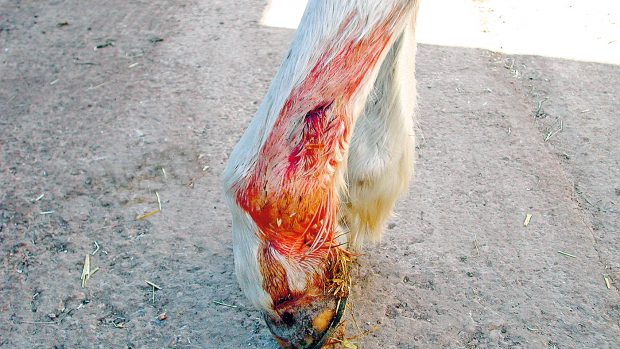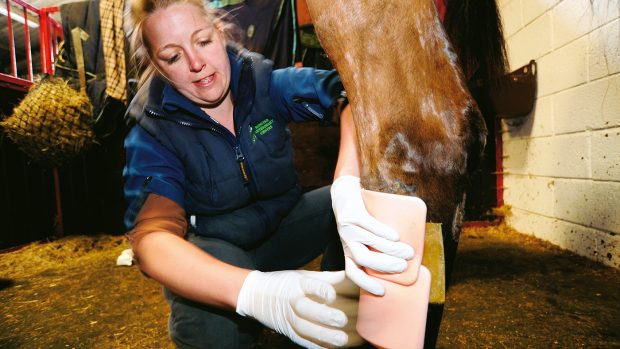Keeping a well-stocked first aid kit available at all times, whether at home or at a show, is vital if you are to administer emergency first aid successfully.
The contents of your kit can be simple or elaborate, but the following are worth having:
- List of key phone numbers, eg vet, doctor, insurers
- Pen and paper
- Torch, ideally a small pen torch and a larger torch (plus spare batteries)
- Thermometer
- Curved, stainless steel scissors
- Small pair of tweezers or forceps
- Clean bucket or big bowl
- Antiseptic wound cleaner eg povidone-iodine (pevidine) or chlorhexidine (Hibiscrub)
- Surgical spirit
- Petroleum jelly (Vaseline)
- Wound gel (Dermagel, Intrasite gel, Nugel, Vetalintex)
- A range of dressings including cotton wool and Gamgee
- Ready-to-use poultice (Animalintex)
- Non-stick sterile dressing squares to go over wounds (Melonin)
- Cotton stretch bandages (K band)
- Adhesive bandages (Elastoplast)
- Self-adhesive bandages (Vetrap)
- Zinc oxide tape or electric insulating tape
- Exercise bandages
- Stable bandages
Useful extras
- shoe-removing kit
- Pliers and wire cutters
- Spare hoofpick
- Salt
- Sterile bag of saline to flush wounds
- Moist baby wipes to clean wounds
- Sterile antiseptic-impregnated nail brushes to clean wounds (E-Zscrub)
- Proprietary ice wrap or cooling bandage
- Clean, old towels
- Bailer twine and some rope
- Medications: to be discussed with your vet and prescribed as necessary
- Bandages: there are many modern bandaging materials available, ask your vet to advise on the best options for your individual situation.



